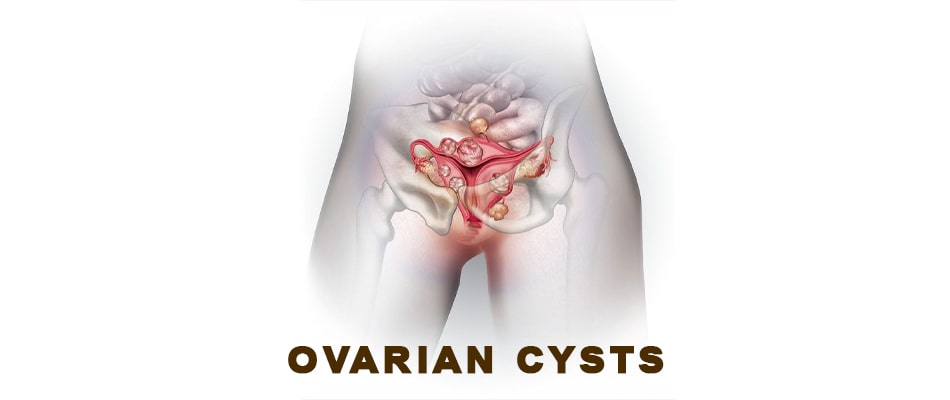Ovarian cysts: symptoms and causes – Dr Chanchal Sharma
Many people follow an unhealthy lifestyle and do not take their lifestyle habits seriously. But, we must keep in our minds that our lifestyle affects our health deeply. A bad lifestyle is not good for our body and mind. Our harmful lifestyle weakens our bodies making them more prone to diseases and disorders.
Some of the bad habits are:
- Smoking or drinking alcohol
- Not having enough sleep
- Eating junk food a lot
- Not exercising
- Taking a lot of stress
These habits are increasing commonly in the modern world. But, there is a hope: Ayurveda. There are people who still don’t know Ayurveda. And there are people who know Ayurveda only as a medicinal system. It is true that Ayurveda is described as an ancient medicinal system. But in reality, it is more than just that.
It is also an excellent guide for people telling them how they should live their lives so that they can avoid diseases and stress/depression.
As per the ayurvedic belief, if you detoxify your body from time to time, eat healthy foods and exercise, your chances of falling ill will be the least possible. Apart from giving you a healthy lifestyle, Ayurveda can effectively treat diseases and stress. One can also easily get ayurvedic treatment of ovarian cyst.
(Read More – Causes, Symptoms and Ayurvedic Treatment for PCOS)
What is an ovarian cyst?
Ovarian cysts are sacs in ovaries or on their surfaces. They are often filled with fluid. A woman has two ovaries; one on each side of the uterus. The size and shape of an ovary resemble an almond.
Every month, an egg comes out of an ovary and goes into the fallopian tube. It awaits fertilization in the fallopian tube. If sperm fertilizes it, it implants into the uterus and grows there. If fertilization does not take place, it comes out of the body with the endometrium during menstruation.
Ovarian cysts are common. Most of the time, they cause no discomfort and also go away within a few months without any treatment.
(Read More – How To Get Pregnant With Ovarian Cyst)
What are the causes and types of ovarian cysts?
Your menstrual cycle is responsible for most ovarian cysts. They are named functional cysts. Other types are less common.
Functional cysts
Small cysts, called follicles, are grown by the ovaries each month. The follicles produce the hormones progesterone and estrogen. The follicles break open to dispense an egg during ovulation.
A monthly follicle is known as a function cyst if it keeps growing. Two types of functional cysts are:
- Corpus luteum cyst. A follicle shrinks and begins producing progesterone and estrogen after releasing its egg. These hormones are useful for conception. Sometimes, the opening from where the egg was released becomes blocked. Fluid builds inside it and it turns into a cyst.
- Follicular cyst. A follicular cyst may take place when a follicle does not break and releases its egg, but it continues to grow.
Other types
Other types include:
- Cystadenoma. They are formed by cells on the surface of an ovary.
- Dermoid cyst. They form from germ cells. Germ cells are the reproductive cells that produce eggs in the ovary.
- Cystadenoma. The cells on the surface of an ovary may cause this kind of cyst.
(Read More – Natural Treatment for Polycystic Ovarian Syndrome)
Ovarian cysts: symptoms
Most ovarian cysts have no symptoms and disappear on their own. But large cysts may cause some symptoms, such as:
- A feeling of fullness, heaviness or pressure in your lower abdomen
- Bloating
- irregular pain in the pelvis
What size of ovarian cyst is dangerous?
Doctors usually do not recommend surgery for ovarian cysts if they are not larger than 50 to 60 millimeters (mm) in size (around 2 to 2.4 inches). But the doctor can also recommend surgery for the cysts smaller than the mentioned size if required.
(Read More – Causes, Symptoms and Ayurvedic Treatment for PCOS)
What does ovarian cyst pain feel like?
Most ovarian cysts do not cause any pain and go away within a few months. Larger cysts may cause pain. The pain could be dull and sharp. It may come and go. If a cyst bursts, it may cause sudden, severe pain.
Ovarian cyst treatment
Get an effective ayurvedic treatment from Doctor Chanchal Sharma. Doctor Chanchal Sharma is one of the best doctors for ovarian cysts. She also provides treatment for male and female infertility, Blocked fallopian tube, PCOS/PCOD. She is a specialist in treating gynecological problems.
Ayurvedic treatment is done using herbal medicines, therapies, exercise and lifestyle changes. Panchkarma and Uttar Basti are highly effective treatments for ovarian cysts. Panchakarma detoxifies and rejuvenates the body. It also improves blood circulation and releases anxiety. It also provides several benefits to the internal organs of the body.
Uttar Basti treatment is about administering medicated oil into the uterus through the vagina. The doctor uses a thin pipe for sending medicated oil into the uterus. This medicated oil reaches the ovaries and cures ovarian cysts. This process also helps maintain a balance between reproductive hormones that are released by the ovaries.
Contact Doctor Chanchal Sharma (Aasha Ayurveda Clinic)
Contact number: +91- 9811773770, Website: www.aashaayurveda.com
Final thoughts
Ayurvedic therapies and herbs can cure several gynecological problems, including ovarian cysts. Ayurvedic treatment is non-surgical. Uttar Basti treatment cures the cysts directly in the uterus. The medicated oil left inside the uterus continues to treat the ovarian cysts.
(Read More – What is AMH? How to Naturally increase AMH Level?)


